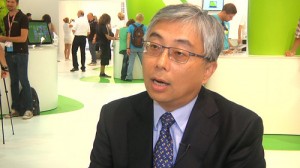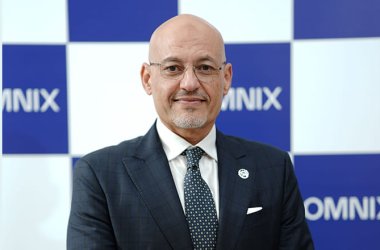
The first round of Windows 8 tablets and laptops coming out later this year will be “just the beginning” of a range of form factors and styles that will evolve as the operating system matures, according to the president of a major Taiwanese computer maker.
Jim Wong, chairman of Acer, said the next couple of years will see continual refinement of products running Microsoft’s new operating system. This will be particularly noticeable in the market for convertibles — a relatively new form factor that attempts to combine the best of tablets and laptops into one product.
“Convertibles are not going to stay like they are at the Windows 8 launch,” he said in a weekend interview at the IFA consumer electronics show in Berlin.
“By launching the first generation all the [computer makers] will learn about user behavior, so I expect in the next 18 months to two years the convertible form factor will continue to evolve, getting more and more user friendly. This is a good weapon for the Windows world, this is only the beginning,” Wong said.
The launch of Windows 8 may help to intensify competition in the market, which has been largely shaped by tablets running Apple’s iOS and Google’s Android.
Acer is hoping that the launch of Windows 8 stokes consumer demand, which Wong said is “really slow” at present.
“People are waiting for Windows 8 and new innovations,” he said. “We still have high hopes for the end of this year and early next year that the momentum will come back.”
Early next year the company also plans to sell computers running Windows RT — an operating system with much of the look and feel of Windows 8 but that runs on low-power ARM processors rather than the x86 chips on which Windows 8 runs.
ARM processors are popular with tablet makers because of their low power consumption, but Windows RT won’t be able to run Windows 8 software. Instead, software makers will have to offer RT-only versions of programs.
Acer originally said it would offer a Windows RT computer this year but then switched the launch date to next year. Wong said the launch was delayed due to company resources.
“We decided to do x86 first and put more effort into understanding customer needs,” he said.
With the introduction of Windows 8, Microsoft is breaking with the past and launching its own tablet computer rather than exclusively relying on companies like Acer to put hardware into the market.
Wong said he had some concerns about Microsoft competing with its partners, but that they still shared a lot in common.
“We are in the same boat,” Wong said. “We are competing with Apple, we are one team.”





